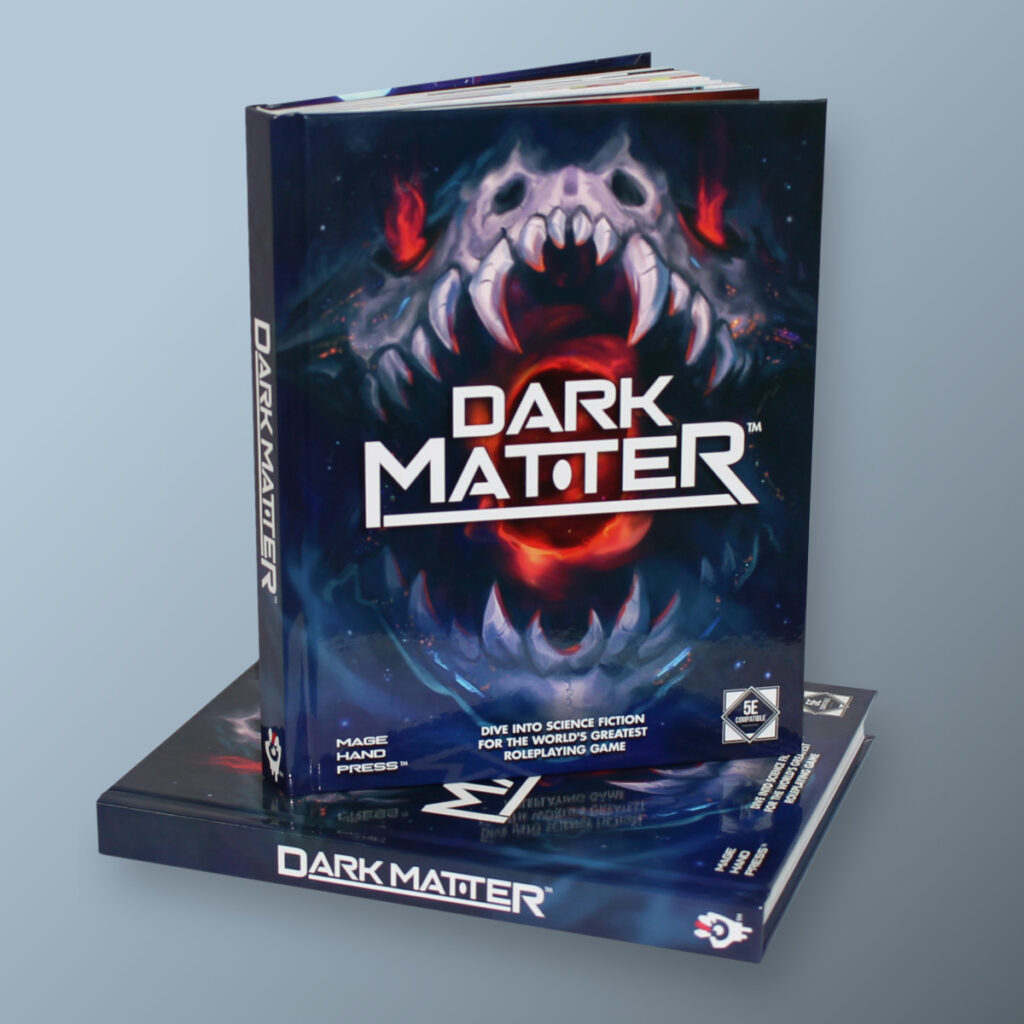In this article series, we’ll be revisiting and reviving the Insomnia project, a book designed to bring horror to your D&D game.
The bare bones of D&D 5e can facilitate most of what you want for a gripping horror game, but it falls short in a few key ways. The following D&D 5e horror rules are optional additions to your game, crafted to address facets of the core system that fail to deliver tangible failure states and high tension. For example, Lingering Scars serves to provide a range of meaningful failure apart from the deaths of the entire party, and Brink of Death reinforces that dropping to 0 hit points is a desperate situation, even when healing magic is readily available. Armed with these rules, your players should never feel fully empowered or in control, exactly as planned.
Brink of Death
Returning from the brink of death is no small feat, and those who manage to do so are seldom unharmed. When a creature regains hit points after dropping to 0 hit points, it remains on the brink of death for 1 hour, during which time it has disadvantage on attack rolls, ability checks, and saving throws.
Furthermore, each subsequent time the creature drops to 0 hit points while it is on the brink of death, it automatically gains a death saving throw failure. These death saving throw failures are cumulative; if the creature drops to 0 hit points twice while on the brink of death, it begins with two death saving throw failures. If it drops a third time before it recovers, it automatically dies.
d6 Death Saving Throws
A dying character is circling the drain of imminent death, yet death always arrives slowly, if at all. To ratchet up the tension around death saving throws, use this variant rule.
Instead of rolling a d20 for death saving throws, roll 3d6. Each 6 rolled on a die counts as a success and each 1 counts as a failure; as normal, a character dies if they accumulate 3 failures and stabilizes if they accumulate 3 successes. If they gain their third failure and third success at the same time, they stabilize.
Doom Clock
At the beginning of each adventure, start a public “timer” at a count equal to the number of characters active in the adventure. As the characters proceed in their investigations, advance the clock by one each time the characters encounter the monster or uncover one of its mysteries. You can also tick the clock forward to heighten tension, reflecting NPCs turning against the characters, the environment becoming more perilous, or something going wrong outside the characters’ point of view.
When the characters have a final confrontation with the monster, you gain a pool of Doom dice, which are d8s, equal to the timer’s count. Once per turn, you can expend a Doom die to add it to a monster’s attack roll or saving throw DC, or you can expend any number of Doom dice and add them to a monster’s damage roll.
Lingering Scars
This variant rule simultaneously avoids character death and injects narrative consequences for failure. Note that this rule only applies to campaigns in which spells such as revivify and regenerate aren’t readily available.
When a character dies, ask the player if they would like to instead survive and continue their character’s story. If they choose to survive, the player chooses to either gain an irrevocable physical injury or a psychological scar. You choose the specific injury or scar and justify how the character survives.
Physical Injuries
The following injuries are life-altering consequences of a monstrous altercation.
Deaf. You can no longer hear.
Eye Loss. You lose an eye. You have disadvantage on Wisdom (Perception) checks which rely on sight. Additionally, you can’t add your proficiency bonus to a ranged attack you make using a weapon beyond half its normal range.
If you lose both eyes, you are blind.
Internal Injury. Your spine, nerves, or organs have been damaged in a way that can’t be easily healed. The GM chooses Strength, Dexterity, or Constitution. This ability score decreases by 4.
Lower Limb Injury. One of your legs or feet is dismembered, mangled, or critically weakened. Your movement speed is halved and you have disadvantage on Dexterity saving throws and Strength and Dexterity checks which require you to move.
Additionally, you rely on some sort of aid to stand and move. This can include, but is not limited to, crutches, a wheelchair or similar wheeled contraption, or a mechanical or magical apparatus that helps support your weight. Work with the GM to decide which sort of aid works best in the campaign world.
Mute. You can no longer speak or perform the verbal components of spells.
Scars. Your injuries linger in obvious, gruesome marks. You have disadvantage on Charisma (Deception), Charisma (Performance), and Charisma (Persuasion) checks you make to interact with creatures that can see your scars. This disadvantage doesn’t apply if a creature is familiar with you or familiar with similar injuries.
Upper Limb Injury. One of your hands or arms is dismembered, mangled, or critically weakened or uncoordinated. You can only use one arm effectively. As a result, you can’t fight using a two-handed weapon, perform two-weapon fighting, or wield both a weapon and a shield at the same time.
Additionally, if you are missing an arm or hand, you can still manipulate objects (but not weapons or shields) with both hands through the use of prosthetics or a mechanical or magical apparatus that helps you grasp and hold objects.
Psychological Scars
The following psychological scars are character-defining changes that occur in response to life-or-death confrontations with a monster.
Amnesia. Your character gains one of the following Flaws: “I don’t know who I am” or “I don’t remember my past.”
You lose proficiency in three skills of the GM’s choice. Additionally the GM can choose that you lose proficiency in a tool or a weapon, or forget up to three spells that you know.
Insomnia. Your character gains the following Flaw: “Sleep eludes me.”
Whenever you take a long rest, roll any die. On an odd roll, you recover hit dice as normal, but otherwise only gain the benefits of a short rest.
Lethargy. Your character gains the following Flaw: “I always feel exhausted and melancholy.”
Whenever you roll a 1 on the d20 for an attack roll, ability check, or saving throw, you can’t add your proficiency bonus to rolls that you make until the end of your next turn.
Obsession. Your character gains the following Flaw: “A specific thought roots itself in my mind.”
The GM chooses a number from 10 to 19. Whenever you roll that number on an attack roll, ability check, or saving throw, the d20 roll becomes a 1.
Paranoia. Your character gains the following Flaw: “I trust no one, and constantly look over my shoulder.”
Whenever you finish a long rest, the GM randomly chooses a creature, or chooses no creature at all. Until you finish a long rest, you are secretly convinced this creature is an enemy, and you conspire against it. If you are given an opportunity to undermine, injure, or endanger this creature, you must take it.
Selfish. Your character gains the following Flaw: “Nobody else matters.”
You can’t take the Help action, restore hit points to other creatures, or cast spells that benefit creatures other than you. If you make an ability check that primarily serves to aid another creature, the GM can impose disadvantage on the roll.
Reckless. Your character gains the following Flaw: “It doesn’t matter if I live or die.”
You have advantage on melee weapon attack rolls, but attack rolls against you have advantage.



